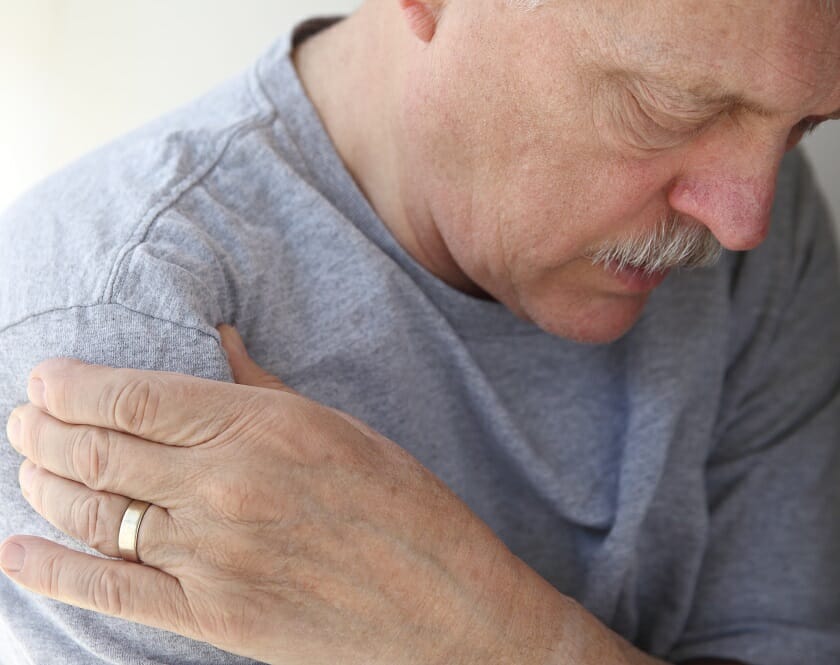Treatment for Rotator Cuff Injuries
What is the rotator cuff?
Your shoulders perform a lot of important functions that you mostly take for granted. When it comes to lifting, picking, and even playing certain games, it is your shoulders that do most of the work, and your rotator cuff plays a huge role in these activities.
The rotator cuff is a cluster of tendons and muscles around your shoulder joint. This is what helps to keep your upper arm bone firmly in its natural position. Your shoulder cuff protects your shoulder joints and allows you move your arms when you want to.
Unfortunately, this vital part of the body is also prone to injuries. A rotator cuff injury occurs mostly in people who perform a lot of overhead motions, and is characterized by a dull ache in your shoulder. This pain usually gets worse when you try to use the injured side.

Common rotator cuff injuries
Rotator cuff injuries happen in different ways, depending on your level of shoulder overuse or type of accident.
- Rotator cuff tear: This is a rotator cuff injury that happens as a result of wear and tear from overuse. If your job requires that you move your arm a certain way continuously for long periods of time, like painting, carpentry, or hand sports (tennis and cricket), you are more likely to have this type of shoulder injury. It can also happen if you are in an accident that involves trauma to your shoulder.
- Tendinitis: This is an inflammation of a tendon that is attached to the shoulder joint or bone. Tendinitis causes serious pain in the area surrounding the affected joint.
- Bursitis: This injury occurs when the bursa, which is a small, fluid filled sac protecting your rotator cuff, gets irritated or injured.
If you begin to experience pain in your shoulder region, you may want to consult your GP to determine if you have sustained a rotator cuff injury.
What causes rotator cuff injuries?
Rotator cuff injury usually occurs as a result of progressive degeneration of the shoulder’s tendon tissue, or from substantial injury to the shoulder. Progressive degeneration is usually brought on my shoulder overuse due to activities that require that you move your arms in a certain motion over and over again. In a few cases, it is caused by an infection.
Rotator cuff injury, risk factors
The following are conditions and factors that can increase your risk of rotator cuff injury:
- Ageing: It goes without saying that as you grow older, your body begins to weaken and if you are not careful with your daily activities, your risk of rotator cuff injuries increases. In fact, this condition is common in adults 40 years and older.
- Job type: There are occupations that significantly increase the risk of rotator cuff injury. Occupations that require repetitive arm motions, such as carpentry, painting, gardening, and so on.
- Sports: If you engage in sports that require repetitive arm motions, such as tennis, cricket, archery, and so on, you stand the risk of getting rotator cuff injury.
- Genetics: If you come from a family where rotator cuff injury is common, chances are you will get it, as there is evidence to show that genetics play a small role in rotator cuff injuries.

Treating rotation cuff injury
Treatment of rotation cuff injury ranges from resting the affected arm, to physiotherapy, osteopathy, and even surgery. Your doctor will determine the relevant course of treatment based on how far your condition has developed and the options that will yield the most result. For this reason, it is important that you seek medical help as soon as you begin to experience problems with your arm or shoulder to keep the injury from progressing. Non-surgical treatment of rotator cuff injuries accounts for more than 50% of symptom improvement.
Getting help
The moment you begin to experience pains, stiffness, or strange feelings in your arm, you should not waste time in seeking medical counsel.
For physiotherapy and osteopathy solutions to your rotator cuff injury, call us on 0000000000. Let us work together to get your injured shoulder back as new.
